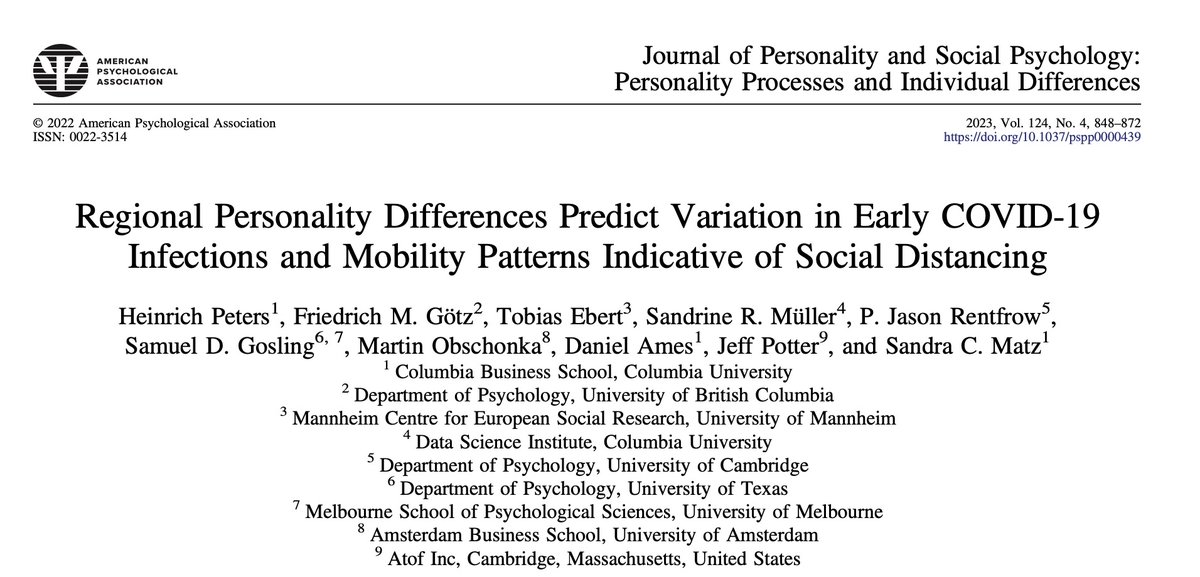Neuroticism is a puzzle for evolution. Worrying seems to be pretty bad for humans! Studies have linked it to lots of bad outcomes. But neuroticism is a good early warning alert! 🚨 New study found neurotic areas of Germany suffered fewer Covid cases. 

Openness to experience was the opposite, at least in the US. Open-minded regions got hit harder at first. Could be all because openness entails more social mixing, more travel. 

But here's the twist: The harm of openness switched off after a few months. By September 2020, open-minded places in the US had FEWER cases on average. Upsides of open-mindedness could be openness to masks, Zoom, and other adjustments. 

This data shows how the effects of culture can *differ* over time--even in a few months.
There's a great example in a study of cell phone mobility data around the world. High relational mobility cultures like to mix socially. But the most mobile cultures CUT their social ties more than low-mobility cultures. 

In my recent study, I also found that cultural effects changed over time. Relational mobility was really bad for Covid at first, but it actually turned slightly helpful after October 2020. 

Cultures aren't static. Their effects depend on circumstances, like how aware people were of the danger of Covid. I love seeing data like this that breaks out effects over time. 👍
Credit to the many wonderful authors of the personality study, including @FriedrichMGoetz @MartinObschonka @sandracmatz @HeinrichPeters5 @SamGoslingPsych and others: psyarxiv.com/sqh98/ 

Cutting relational mobility over time study from the wonderful @joannaschug: frontiersin.org/articles/10.33… 

Last and least, my own study on relational mobility, tightness, rice, and Covid (free download on my SSRN page). Hat tip to CS Lee, @AlexEngPsych, and Shuang Wang. journals.sagepub.com/doi/full/10.11… 

• • •
Missing some Tweet in this thread? You can try to
force a refresh

 Read on Twitter
Read on Twitter












